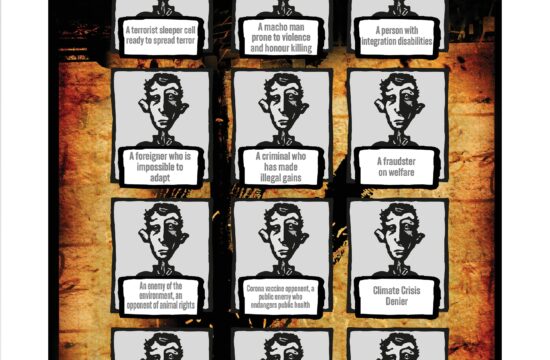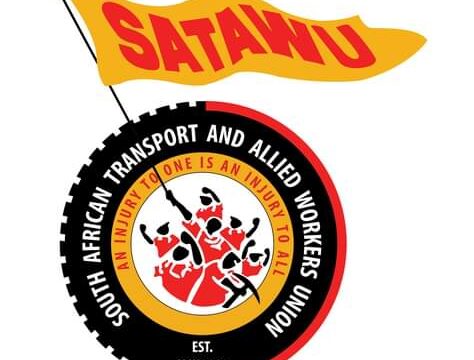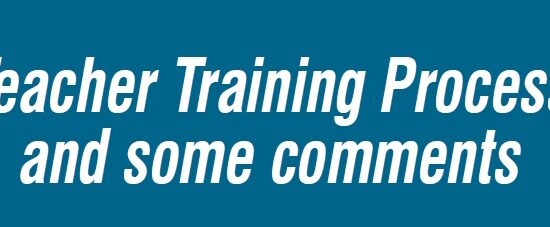Watshia Muyembi
Activist head of ADF Human Rights Commission
INTRODUCTION:
First of all I wish to thank my heavenly father, God Almighty, for granting me the strength and wisdom to speak for the voiceless and address sensitive matters that affect African refugees in South Africa and The SADC region.
I would also like to express my deep and sincere appreciation to my organisation the African Diaspora Forum (ADF) for allowing me to speak on behalf of the organisation and to the organisers of this 2 day Continental Conferences in Africa.
While I will be talking about the Human and Education Rights of Refugees and Asylum Seekers in South Africa and SADC region, allow me to tell you that as an organisation that represents and defend Migrants, Refugees, and Asylum Seeker’s Rights, we strongly condemn the behavior and some illegal activities carried out by some Migrant, Refugees and Asylum Seekers that cause pain and suffering to our host nation South Africa, namely drug dealing, hijacking, selling of expired consumable goods, human trafficking, children trafficking, smuggling of illegal tobacco product, housebreaking, stealing, killing among others…
It is completely wrong to be accepted to live together despite challenges but to desire to contribute to the destruction and the downfall of the nation that has accepted you. We appreciate you South Africa and bless this land to be a place of peace for every person who will be coming and those who are living in it.
ADF PROFILE
The African Diaspora Forum (ADF) is an umbrella organization of more than 35 migrant organisations representing migrant communities, Refugees, and Asylum Seekers living in South Africa.
We work for an integrated society that is free of xenophobia and all other Kind of discrimination.
The organisation’s aims to promote and consolidate a Pan-African forum for African residents of whatever nationality to work together to build one common voice on common issues, and a shared feeling of belonging to Africa.
It further seeks to facilitate and develop relationships, exchanges, and mutual understanding between South Africans and foreign nationals living in South Africa (in particular, but not exclusively, through pan-African cultural events; participation of civil society organisations at the local level – such as community policing forums, civics, street committees, etc.).
ADF also works to ensure that xenophobic statements/attitudes in public discourses and policies do not remain unchallenged; and to work with South African institutions (at the national, provincial, and local level).
ADF promotes integration between all African communities and dismisses discriminatory policies that fuel xenophobia.
The Forum is open to all willing individuals and organisations sharing its Objectives.
ADF was formed in 2008 after the first xenophobic attack on foreigners living in South Africa.
It consists of the union of several organisations representing African migrant communities living in South Africa.
For more information: http://www.adf.org.za
OVERVIEW
Since 1994, the South African government has adopted a variety of social policies to redress the socio-politico and economic imbalances created by the apartheid regime (Spaull, 2013). The inclusion of the Bill of Rights in the Constitution of 1996 was a clear indication of the post-1994 democratically elected government’s commitment not only to the socio-economic rights of South African individuals but of all individuals living within the borders of South Africa (Letseka, 2014). Access to basic rights in South Africa is a constitutional paradigm extended to refugees and asylum seekers, including their children (Yamauchi, 2011).
In light of these provisions, since the xenophobic attacks of 2008 against foreign nationals, and the continuation of these attacks in the formanti- migrant movement called OPERATION DUDULA, the South African state has been under the spotlight regarding its less than adequate responses to the violation of the general human rights of refugees and asylum seekers (Spree & Valley, 2012).
HUMAN RIGHTS ISSUES:
South Africa is the preferred destination for various categories of migrants and faces a host of migration-related challenges, including increased prevalence of irregular migration, including women and unaccompanied minors; inadequate migration management policies and border management processes; rising…
These problems include policy implementation, xenophobia, access to health services, discrimination, corruption, and lack of awareness of human rights for refugees and asylum seekers. These problems negate the rights and interests of refugees and asylum seekers in South Africa.
They (Refugees and Asylum Seekers) face big challenges with:
– Documentation
– Access to healthcare
– Access to Education
– Within the transport department
– Discrimination etc..
In general access to basic services.
While research on the rights of migrants to access basic services in South Africa has increased since the xenophobic attacks of 2008 and its continuation in the form of Operation Dudula, little is known about the practical expression of the rights of refugees and asylum seekers’ children to access education. This right is considered one of the most basic rights in international and domestic law. The principle of social justice is necessary in guiding South Africans to ensure that education is inclusive, accessible, and affordable for all within its borders.
BACKGROUND:
South Africa is a signatory member of the 1951 Convention on the Status of Refugees. This United Nations (UN) multilateral treaty defines who is a refugee, and sets out the rights of individuals who have been granted asylum and the responsibilities of host nations to promote and protect them (Plunder, 1977). The signing and ratification of both the 1969 Organisation of African Unity (OAU) convention regarding specific aspects of refugees in Africa, and the 1989 United Nations Convention on the Rights of the Child (UNCRC) both indicate that South Africa is committed to respect and upholding international and regional instruments about the rights of refugees and asylum seekers, including their children (Cohen, 1989; Brandon et al., 2008). These instruments have found expression in various sections of the Constitution of South Africa adopted in 1996. For instance, section 28 and 29 of the Constitution of South Africa outlines the specific rights of all children in South Africa, including the right to access education (RSA, Constitution of South Africa No 108 of 1996).
The right to access education in South Africa is further legislated in the Schools Act of 1996, which makes access to education compulsory for all children until they reach the age of fifteen or the end of Grade 9 (South African Schools Act No.84 of 1996). This Act emphasises that public schools are obligated to admit learners and serve their educational requirements without unfairly discriminating against them (South African Schools Act No. 84 of 1996, 2011).
Along the same line, Refugees, Asylum Seekers, and their children have these rights:
– Rights, specific to disabled children.
– Right to health and healthcare services
– Right to benefit from social security
– Right to a good enough standard of living
– Right to education
– Right to protection against harmful work
There is a need for a qualitative approach to investigate the experiences of refugees and asylum seekers’ children about their right to access education in democratic South Africa. As stated by Kvale, S. (2007).this approach helped to analyse the experiences of refugees and asylum seekers in order to understand the effectiveness and efficiency of the current legal framework with regard to the schooling of refugees’ and asylum seekers’ children.
MORE DETAILS:
An assessment of policies and their implementation with regard to access to education by refugees’ and asylum seekers’ children in South Africa and SADC region is needed.
Refugees’ and Asylum Seekers’ children in South Africa face challenges in accessing education.
The challenges of access to education emanate mainly from poor implementation of educational policies and confusion regarding policies that oversee refugees in South Africa.
There is a gap in policy that has rendered access to education for refugees’ and asylum seekers’ children ineffective. School principals are not well informed about different categories of foreign nationals and the documentation they should possess while in the Republic of South Africa. As a result.
Schools often ask refugees and asylum seekers to produce study visas for their children as a prerequisite for enrolment, even though study visas fall under the Immigration Act. Refugee and asylum permits are disregarded by school principals as valid documents for admission and enrolment.
To a certain extent, schools demand that refugees and asylum seekers produce birth certificates for their children issued by the South African Department of Home Affairs, even for children born outside of South Africa.
Access to education for refugees, asylum seekers, and their children has been found to be marred with ambiguity and barriers. The constitutional right of these children is violated because of gaps in policy and misinterpretation of immigration policy by school principals.
Access to education for refugees, asylum seekers, and their children is not been guided by the principle of “every child deserves an education” or of “the best interests of the child”.
Study shows that access to education for refugees’ and asylum seekers’ children, and migrant children in general, has been improved both in terms of participation and accessibility in many developing countries through immigration policy reform.
This is most apparent in the USA and Canada where DACA (Deferred Action for Childhood Arrivals) and IRPA (Immigration and Refugees Protection Act) respectively create an obligation for officials to consider the personal circumstances of children in immigration policy implementation (Singer et al., 2013; Ali, 2006).
As an organisation we face challenges with Migrants, Refugees, and Asylum Seekers, we recommend that the South African Department of Home Affairs works hand-in-hand with the Department of Education to address the issue of documentation to help children comply with the school administration and enrolment process.
From the institutional perspective, we also suggest that education policy management and implementation be strengthened through advocacy and awareness training. Parents need to be informed of the policy and the accountability structures in the Department of Education in the country in general and in the province where they live in particular.
After observing the lack of collaboration between the departments, which is needed to curb various challenges affecting the refugee community in South Africa. We suggest that the Department of Education works in collaboration with the Department of Home Affairs to address institutional barriers to education for all. Their aim should also be to conduct a policy review through a thorough consultation of parents, school principals, and school governing bodies in order to adopt practices that promote the interests of the child in both policy formulation and implementation.
The challenges faced by refugees and asylum seekers in accessing their constitutional rights in South Africa are likely to worsen if the Refugee Amendment Bill is not properly discussed and implemented. We will be in consultation with Lawyers for Human Rights and other legal organisations to discuss the content of the white paper currently proposed by the minister of Home Affairs on how it will impact the Rights of Refugees and asylum seekers.
The Department of Home Affairs is illegalising Migrants, Refugees, and Asylum Seekers in South Africa with the way it handles their cases.st of the child‘ devised in the CRC. Many states and communities views child marriage in criminal law perspective alike rape, sexual abuses and so on. That is not a complete approach as it ignores the human rights concerns . The issue therefore requires strong human rights focus as well.
DEMOCRATISATION OF EDUCATION
Schools must be organised along democratic lines, taking into account that democracy is best learned in a democratic setting in which participation is encouraged, freedom of expression and a sense of justice and fairness prevails and democratic approaches function which allow the nurturing of qualities such as participation, innovation, co-operation, autonomy and initiative in learners and staff (Starkey 1991).
DECOLONISATION OF EDUCATION.
Is to translate first every teaching and learning materials to our languages, to teach our values and cultures not the colonised culture and values because our colonisers were not interested in making us better people. Colonising people is not about helping them but helping ourselves
CONCLUSION
Like many other conferences, this conference raises almost as many questions as it answers. However, it has answered questions and objectives. The findings indicate that access to education for refugees’ and asylum seekers’ children is a guaranteed right according to several international, regional, and national agreements and laws but implementation is marred.
Barriers to implementation include conflicting policies (for example, The Immigration Act and the South African Schools Act), confusion among principals as to which policies take precedence, gaps in the policies (such as whether or not the only acceptable birth certificate is one issued by the Department of Home Affairs), language barriers, institutional barriers, and common prejudice.
If South Africa is to grow its economy and remain a destination of choice, its implementation of policies must be made to align with its public documentation and principles. Without such an alignment both asylum seekers and the country will suffer, as the burden of an ever-growing number of poorly educated permanent residents will begin to be felt socially and economically.
Access to education for refugees and asylum seeker’s children must be guided by the social justice principle of “every child deserves an education”, regardless of the legality of their parents in South Africa. Failure to allow them to study is a violation of the Constitution and international law.
The organization aims to promote social cohesion which is a unique way to get migrants, refugees, asylum seekers, and locals to come together but we must not be mistaken here. Social cohesion events will not automatically translate into social cohesion as long migrants are viewed as an economic threat, economic oppressors, and economic space invaders by local communities and if we cannot find a solution to this problem then we cannot achieve anything.
RECOMMENDATIONS
Based on some of the findings, we, as an organisation that represents Migrants, Refugees, and Asylum Seekers, propose some recommendations to enhance the efficiency and effectiveness of access to education for refugees, asylum seekers and their children:
TO LAWMAKERS
The Department of Home Affairs should formulate policies that are reasonable and fair in meeting the needs of Migrants, Refugees, and Asylum seekers children. A child should not separate from the parent file before the parent process is finalised.
As far as the process of ratifying international agreements involves Parliament, it is recommended that lawmakers formulate immigration policies that are reasonable and fair in meeting the needs of migrants, refugees, asylum seekers, and their children.
Lawmakers are recommended to provide clarity on how long an asylum seeker case will take to be finalised, on how long RAASA (Refugee Appeal Authority of South Africa) which was RAB (Refugee Appeal Board) will take to finalise an appeal claim.
Lawmakers should investigate Why the Department of Health is charging Refugees and Asylum Seekers parents R10 000 for giving birth in a public hospital and failure to make payment results in the parent not being given proof of birth which the Department of Home Affairs needs to register a child. Furthermore, it is recommended that lawmakers formulate polices that speak to the needs of children. In the current policy regime, an illegal or undocumented parent is prevented from registering the birth of their children in South Africa, which goes against section 28 (1) (a) of the Constitution which states that every child has the right to a name and a nationality from birth. In formulating these policies, lawmakers must focus on the best interests of the child, regardless of the legal status of the parents. The policy should not be punitive toward children for a failure on the part of parents to adhere to South African legal requirements.
Finally, it is recommended that lawmakers include an awareness campaign throughout South Africa that will focus on speaking about South Africa’s international obligations to protect and promote the rights of refugees and their children.
TO THE NATIONAL DEPARTMENT OF EDUCATION
The Department of Education (DoE) should look at amending the language policy in schools, taking into consideration the language barriers of refugees’ and asylum seekers’ children born out of South Africa. Section 6 (2) of the South African Schools Act urges the governing body of a public school to determine the language policy of the school, subject to the Constitution, the South African Schools Act, and any applicable provincial law. It is recommended that the DoE invests in language proficiency classes for migrant children that will enable them to enjoy their constitutional right to study in a language they understand. The Department must also create an awareness campaign which throughout schools at the beginning of the academic year. This campaign will focus on fairness, equity, and participative enrolment and admission process. It is further recommended that the DoE creates an internal mechanism that may be utilised by all parents, including migrant parents that would redress any unfairness in the admission and enrolment process, cognisant of the financial implication of such measures.
TO THE DEPARTMENT OF HOME AFFAIRS
It is recommended that the Department of Home Affairs reviews its process of documenting refugees and asylum seekers, specifically the family joining process, to make it more fair, accessible, and effective, so that the documentation of children does not create unnecessary barriers to their ability to access basic services. Additionally, the DHA ought to strengthen its processes of collecting relevant data that could be used by the Department of Education both at a national and provincial level for policy formulation. It has to embark onan awareness campaign about the process of documenting a refugee child in South Africa.
The Department of Home Affairs should not isolate children from their parents before finalising their cases.
TO SCHOOL PRINCIPALS
School principals need to be well informed about the refugee regime in South Africa. This information will enable them to categorize refuneed to be well informed about the refugee regime in South Africa. This information will enable them to categorize refugees, asylum seekers, and migrants and will enhance theirunderstandingof refugees and asylum seekers, particularly the challenges they face with documentation so that schools do not ask them to produce inappropriate documents when applying for admission. They also need to sympathize with refugees and asylum seekers’ children by giving parents periods that are in keeping with the functioning abilities of the Department of Home Affairs, and not set limits that DHA is currently unable to manage, for whatever reason.
School principals need also to ensure that there is no discrimination among learners because this may affect the academic progress of refugees and asylum seekers children.
TO SCHOOL GOVERNMENT BODY
It is recommended that SGBs try to include refugee parents on the SGBs if the number of foreign students in the school is high, or at any rate proactively consider the opinions and issues of refugees and asylum seekers in their area.
TO TEACHERS UNION
To make a follow-up on policies formulation and implementation in South Africa so that refugees and asylum seekers children are not discriminated against by the policies.
The implementation of educational policy for inclusion and equity in South Africa will need a strong support system from all role players, including, civil society, and school teachers which are represented by you.











